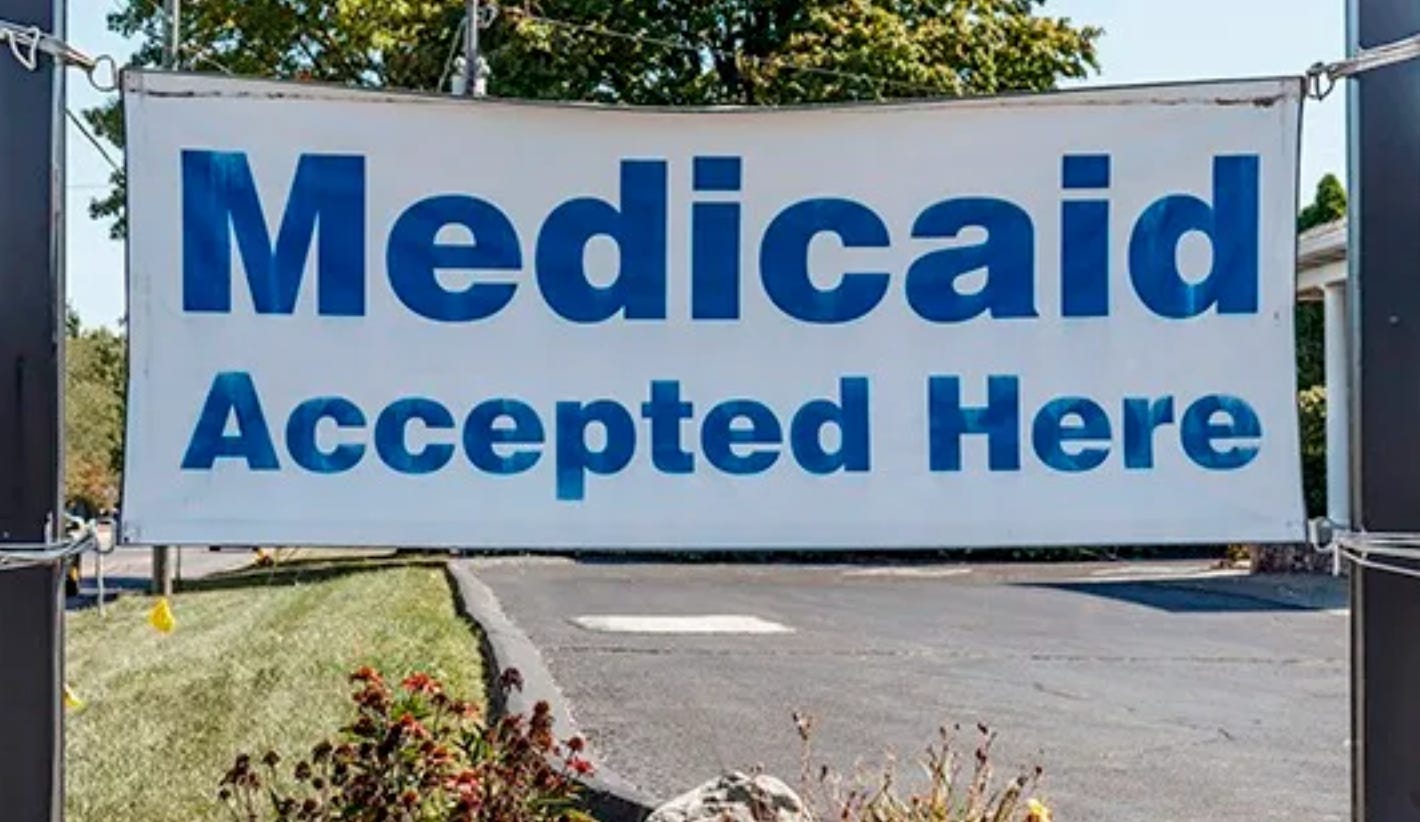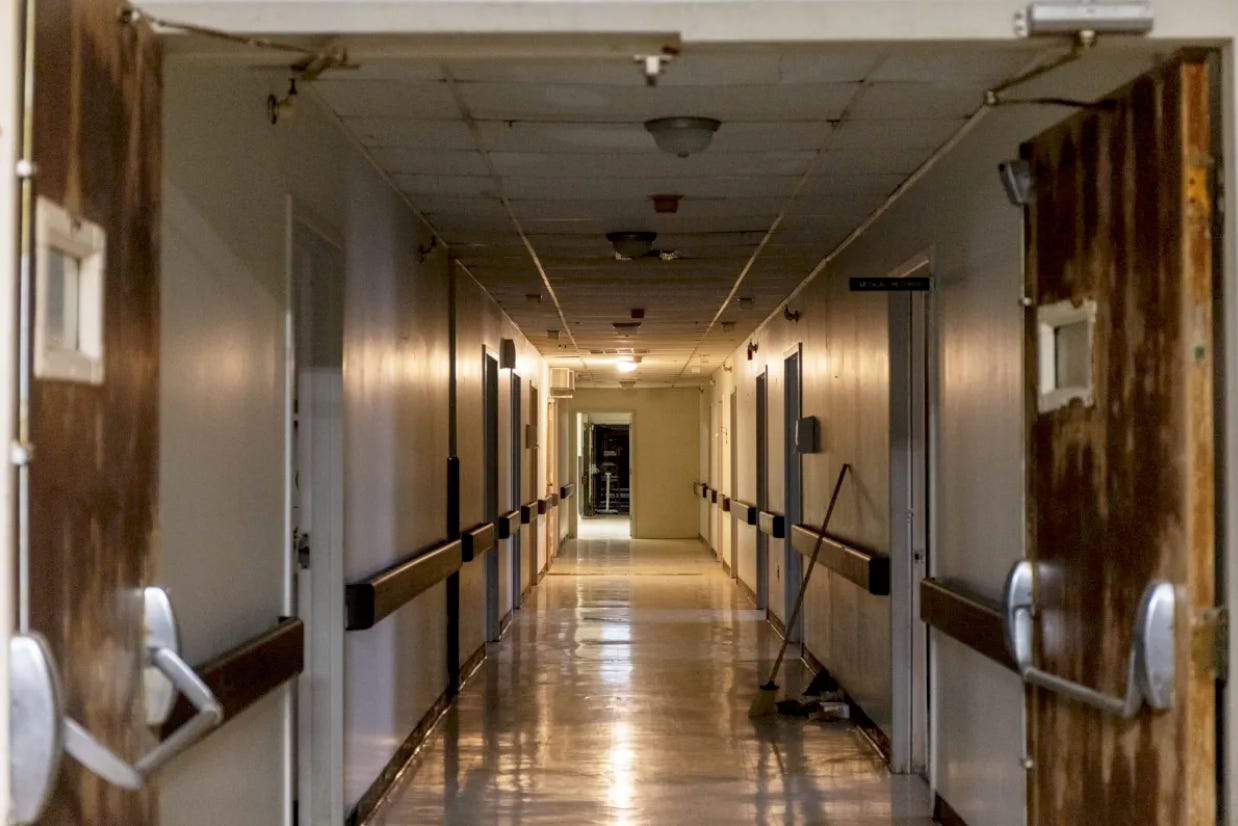State’s ‘healthcare deserts’ likely to worsen with coming federal cuts
When Louise, Mississippi resident Essquelna Brown was diagnosed with lupus, she faced a harsh reality, on two fronts: She would need specialized treatment for a potentially debilitating autoimmune disease, and the Delta, despite its lush landscape and fertile soil, is a healthcare desert.
“We were driving like an hour and a half one way, three times a week,” Brown said of the need to seek care options far from home. “Being in Louise, there’s nothing there—only a gas station. You’ve got to drive 15 miles just to get to the nearest grocery store or doctor.”
Louise is a low-income community in the Delta’s Humphreys County, which lacks many healthcare resources. The county’s only hospital, Patient’s Choice Medical Center of Humphreys County, closed in 2013.
Through a project with Mississippi Black Women’s Roundtable, Brown tried to find a rheumatologist in the region, but, she said, “It was not a rheumatologist in Greenwood to see me. It wasn’t one in Greenville. It wasn’t one in the Delta that could serve us.”
Brown said Baptist Memorial Hospital-Yazoo provided the closest care option, but due to funding issues related to the Mississippi Legislature’s refusal to expand Medicaid, the facility lacked the infrastructure to fully care for Brown and referred her to medical care options in Jackson, more than 60 miles from her home. Rural hospitals are often marginally profitable and rely upon Medicaid reimbursements that have been limited by the state’s refusal to expand the program.
As a result, Brown and her family had no choice but to take the nearly three-hour round trip to and from Jackson multiple times a week to see her primary care doctor and rheumatologist, and to take her chemo treatments. Travel costs contributed to more than $100,000 in medical bills, she said.
Versions of Brown’s story can be found across Mississippi, one of only 10 states that have opted not to expand Medicaid. In refusing to do so, Mississippi has declined more than $2 billion in annual federal funding. Now, with the Trump administration making major cuts to Medicaid, medical deserts such as those in the Delta are likely to get even worse.
Limiting Medicaid reimbursements has placed a significant financial strain on the state’s rural hospitals and on the residents who use them. Of Mississippi’s 82 counties, 62 are considered rural and those are home to nearly 54 percent of the state’s population. Intrinsic poverty, combined with the Medicaid coverage gap, low-income adults who earn too much for traditional Medicaid but not enough to qualify for subsidized marketplace insurance, has forced hospitals to face the brunt of the cost when patients enrolled in Medicaid seek care. This has resulted in 37 percent of Mississippi hospitals facing immediate risk of closure, 54 percent facing some risk of closure, and 64 percent having been compelled to curtail certain services. In the Delta, those impacts include the closure of the Delta Health Greenville medical center’s neo-natal intensive care unit and the reduction of labor and delivery services at Greenwood-Leflore Hospital.
In July, President Donald Trump signed his multi-trillion dollar “Big Beautiful Bill” tax and policy legislation into law, including the largest reduction in federal health and social safety net programs in history. The new law proposes to cut Medicaid spending alone by $911 billion over a span of 10 years, and according to the Congressional Budget Office, an estimated 10 million more people will become uninsured. To reach its purported savings, the bill outlines initiatives including:
● Reducing federal Medicaid funding by $137 billion during the next 10 years
● Requiring states to verify recipients’ Medicaid eligibility twice per year
● Requiring adults aged 19 to 64, with few exceptions, to complete at least 80 hours of work or community engagement per month or be enrolled in an education program at least half-time to qualify
● Requiring state Medicaid programs to reduce reimbursement rates by 10 percent each year until they reach either 100 percent or 110 percent of what Medicare pays
In addition to the struggles that rural Mississippi hospitals already face, the new legislation could cause facility owners to lose up to $1 billion during the next decade. All of which could make Mississippi’s rural hospitals’ already thin margins untenable.
A study conducted by the Commonwealth Fund found that major reductions in Medicaid funding could result in hospital operating margin declines of 19 percent on average for facilities serving disadvantaged populations, and that drop could be as significant as 56 percent in some rural areas. The study also found that as people begin to lose coverage under the new legislation, uncompensated care costs could rise by around 29 percent, further squeezing the margins such hospitals face. With ever-tightening margins, rural hospitals will be faced with difficult choices, such as cutting key inpatient units just to stay afloat.
To attempt to mitigate the losses faced by rural hospitals, the legislation includes the Rural Health Transformation Program, which will allocate $50 billion over six years to help the facilities. That could help fill some of the holes created by the cuts, but is a comparatively small amount and access to the funds is uncertain as states will have to apply for them. AP-Fact Check noted that rural hospitals are still expected to lose between $58 billion and $137 billion nationally during the course of the next decade.
Eight rural Mississippi hospitals are considered at risk of closing as a result of meeting one or both of the following criteria: 1) being in the top 10 percent of the Medicaid payer mix of rural hospitals across the country and/or 2) experiencing three consecutive years of negative total margin. These hospitals are Alliance Healthcare System (Holly Springs); Delta Health-Northwest Regional (Clarksdale); Baptist Memorial Hospital-Booneville; Greenwood-Leflore Hospital; Baptist Anderson Medical Center (Meridian); Highland Community Hospital (Picayune); Panola Medical Center (Batesville); and Baptist Memorial Hospital-Yazoo.
Among the problems such hospitals face are challenging “payer mixes,” in which less than 10 percent of patients are commercially insured, said Dr. Shawn Rossi, vice president of communication and member engagement for the Mississippi Hospital Association. Rossi noted that coming federal cuts will only widen the coverage gap, deepen the financial strain, and further threaten Mississippians’ access to care.
“Expanding Medicaid was the most cost-effective way to extend coverage to low-income working adults,” Rossi said. “It would have brought billions of federal dollars back to Mississippi to strengthen hospitals and improve access to preventive and primary care. Not expanding Medicaid not only harmed revenue for rural hospitals, but it worsened health outcomes for low-income Mississippians.”
As The Mississippi Independent previously reported, Mississippi’s Medicaid eligibility rules were already among the nation’s most restrictive before the current crisis. Those collecting social security, aged over 65, disabled or pregnant are automatically covered. Parents can qualify if their income is at 27 percent of the federal poverty level, translating to about $7,230 annually for a family of three. Around 667,000 children and adults use Medicaid in Mississippi, and without federal subsidies, even some of the state’s poorest and neediest will not qualify. A single mother earning $8,000, for example, won’t qualify, but her children will.
Nationwide, hospitals are expected to face $32.1 billion in lost revenue and a $7.7 billion rise in uncompensated care next year because of Medicaid cuts and the expiration of tax credits under the Affordable Care Act, according to a September report by the Robert Wood Johnson Foundation. In Mississippi alone, uncompensated care costs are projected to rise 29 percent, or about $251 million, which will place 23 rural hospitals at immediate risk of closure, second only to Kansas. As U.S. Rep. Bennie Thompson told The Mississippi Independent in August, the impact in his district, which includes the Delta, could be catastrophic. “In one county, there isn’t even a doctor,” he said. “That’s only going to get worse.”
For Essquelna Brown, navigating the Delta’s healthcare desert, devoid of options due to a lack of adequate state and federal support, has been a daily reality.
“If my dad get sick or I get sick in Louise, we have to drive an hour to Indianola,” Brown said. “We have to drive at least 30 minutes to Yazoo city. We have to drive an hour and a half to get to Jackson just to see a doctor. It’s crazy. It’s like this nowhere else in the world.”
Images: Medicaid sign (via The BMG); empty hallway inside the shuttered Patients’ Choice Medical Center of Humphreys County in Belzoni, Mississippi (credit: Eric J. Shelton/Mississippi Today)





